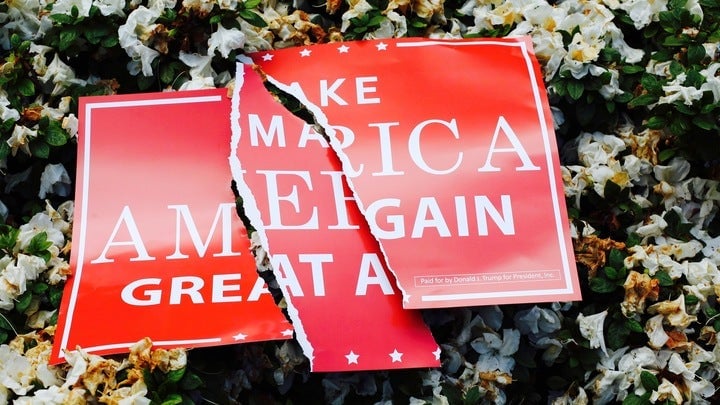Columbia University’s free speech experts argue that when Trump blocks Twitter followers he violates the Constitution
Back in the day, a US president didn’t communicate on social media and the people couldn’t tweet at the commander in chief. Now, government officials are vociferous on Twitter—Donald Trump especially—and free speech experts say that creates constitutional obligations in the US, including keeping followers who aren’t fans.


Back in the day, a US president didn’t communicate on social media and the people couldn’t tweet at the commander in chief. Now, government officials are vociferous on Twitter—Donald Trump especially—and free speech experts say that creates constitutional obligations in the US, including keeping followers who aren’t fans.
Columbia University’s Knight First Amendment Institute on June 6 wrote a letter to the president demanding that Trump unblock Twitter accounts of former followers whose posts displeased him. The missive was also sent to White House counsel Donald McGahn, press secretary Sean Spicer, and social media director Dan Scavino.

The institute says it aims to change the blocking policy generally. The letter specifically names two recently blocked individuals and the alleged bases for blocking who will presumably be plaintiffs should this matter turn into a litigation (for now, their attorneys are just asking that the accounts be unblocked).
Holly O’Reilly (@AynRandPaulRyan)—an avid tweeter and adamant Democrat—was blocked on May 28. According to the institute, it was due to a her tweet of a GIF showing the pope looking uncomfortable while standing next to Trump.
According to the demand letter, Joseph M. Papp (@joepabike), a registered Republican, was blocked after tweeting at the president twice on June 3. One tweet said “Greetings from Pittsburgh, Sir.” The other asked, “Why didn’t you attend your Pittsburgh Not Paris Rally in DC?” Both were accompanied by the hashtag #fakeleader. On June 4, Papp tweeted about Trump blocking him on Twitter:
The institute argues that presidential use of the social media platform to discuss and debate issues of public importance make it a public space where free speech protections apply. ”Trump uses Twitter in a way that creates a public forum in which debate arises. For that reason, he takes on responsibilities he wouldn’t have if he used the account privately or just tweeted family photos,” explains Alex Abdo, an attorney working on the matter.

First Amendment, Abdo says, requires that US government officials using social media to debate activities related to their office in the public space also tolerate disagreement in that space. Blocking followers whose comments and posts aren’t positive, according to the institute, chills protected free speech.

The demand letter doesn’t specify how long Trump has to comply with the requested change to his policy before further legal action is taken. Abdo says the institute will give the White House “a reasonable amount of time” but believes there’s some chance that the government will ignore the demand and that litigation will follow soon enough. Quartz contacted the White House for comment on the blocking policy shortly after the demand letter was published and will update this post if there is a response. However, press secretary Sean Spicer on June 6 said in a press conference, not in the context of a discussion of this demand letter, that Trump’s tweets are official statements, which pleased the Knight Institute.
The digital age has abstracted the public space. Presumably future cases—perhaps this one if Trump doesn’t unblock followers as requested—will shape this amorphous territory which for now is legally mysterious.
The demand letter is part of a greater effort by the institute to make sure that free speech applies online, according to Abdo. The highest courts haven’t addressed the nuances of social media platform use by government officials but questions will only continue to arise, probably more and more with every new technology adopted.
In other words, blocking is just the beginning. “This is the tip of the iceberg,” the attorney predicts.